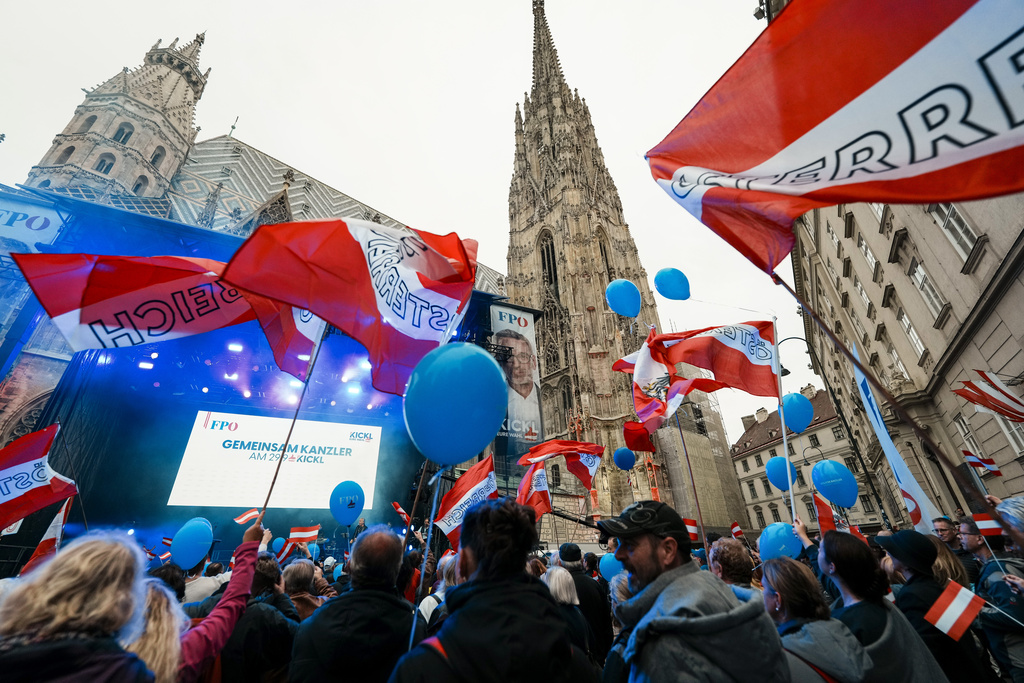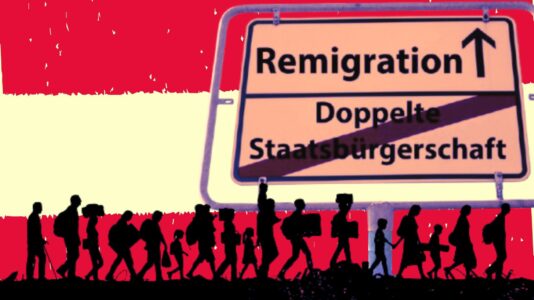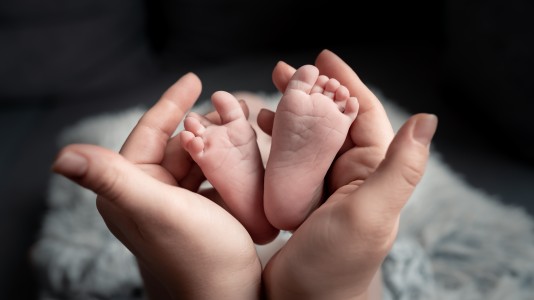A massive protest planned for Saturday in Vienna to support Freedom Party (FPÖ) leader Herbert Kickl, who was excluded from ongoing government negotiations despite winning the most votes in the recent election, has been banned by the police.
Heute reported that the rally was expected to draw 1.4 million participants and was organized by the group Fair Thinking, which gained notoriety among the Austrian establishment for its demonstrations during the Covid-19 pandemic.
The protest, promoted as a show of support for “People’s Chancellor Kickl,” sought to challenge the so-called “sugar coalition” of parties negotiating to form the government. The FPÖ and Kickl, despite their electoral success, were left out of talks, fueling outrage among his supporters.
Kickl, who previously appeared at Fair Thinking’s protests, has become a popular figure among many Austrians, representing opposition to Covid policies, insisting on neutrality in the Ukraine conflict, and expressing dissatisfaction with Austria’s political elite over its commitment to mass immigration.
🇦🇹🚨 "It is customary for the president to commission the leader of the party with the most votes to conduct substantive talks after the election. I didn't do that this time."
Austrian Federal President Alexander Van der Bellen on why he overlooked the election-winning FPÖ to… pic.twitter.com/QR8eBg51Az
— Remix News & Views (@RMXnews) October 22, 2024The initial protest date of Nov. 9, which coincided with the anniversary of the 1938 Nazi pogroms, drew condemnation from political leaders, including Chancellor Karl Nehammer, who called the timing a “slap in the face to victims’ relatives.”
President Alexander Van der Bellen also expressed strong disapproval, leading to organizers postponing the event to Nov. 30.
On Thursday, however, Vienna police announced the prohibition of the protests under Section 6 Paragraph 1 of Austria’s Assembly Act. The justification cited potential disruptions to businesses in Vienna’s shopping districts and the flow of traffic.
Für Samstag wurden im Wiener Stadtgebiet mehrere Versammlungen angezeigt. Nach Prüfung wurden zwei Versammlungen, nämlich „Frieden und Neutralität! Gegen die Zuckerlkoalition!“ und „Frieden und Neutralität" von der LPD Wien gem. § 6 Abs. 1 Versammlungsgesetz untersagt. (1/3)
— POLIZEI WIEN (@LPDWien) November 28, 2024A statement from the police warned: “Holding an unannounced or prohibited meeting constitutes an administrative violation. Such meetings can be dissolved, and participants must disperse immediately.”
Organizers have not backed down, hinting at plans to proceed informally or under different guises. A statement on their Telegram channel invited supporters to “take a walk” in Vienna during Advent and visit Christmas markets, particularly the one at Marien-Theresien-Platz.
Critics have argued that prioritizing undisturbed shopping and traffic flow over freedom of assembly sets a dangerous precedent amid fear this rationale could be used to justify arbitrary bans on protests, limiting democratic expression.
The ban has further inflamed tensions in Austria’s political landscape, highlighting deep divisions over Kickl’s exclusion from government negotiations.
Kickl’s FPÖ has gained support since topping the September federal elections but being sidelined by other parties in coalition talks, winning Sunday’s state election in Styria with 35.6 percent of the vote.
BREAKING: Incredible victory for right-wing FPÖ in Austria.
The party scored a first place showing in Styria, and increased its result by a shocking 17.9% from the last election.
Conservatives: -9.4
Greens: -6.0
Socialists: -1.4 pic.twitter.com/2SuVLH3vcv
— Remix News & Views (@RMXnews) November 24, 2024The legacy Social Democrats (SPÖ) and Austrian People’s Party (ÖVP) saw their vote shares drop in what is considered to be punishment for its anti-democratic cordon sanitaire imposed around the FPO.






